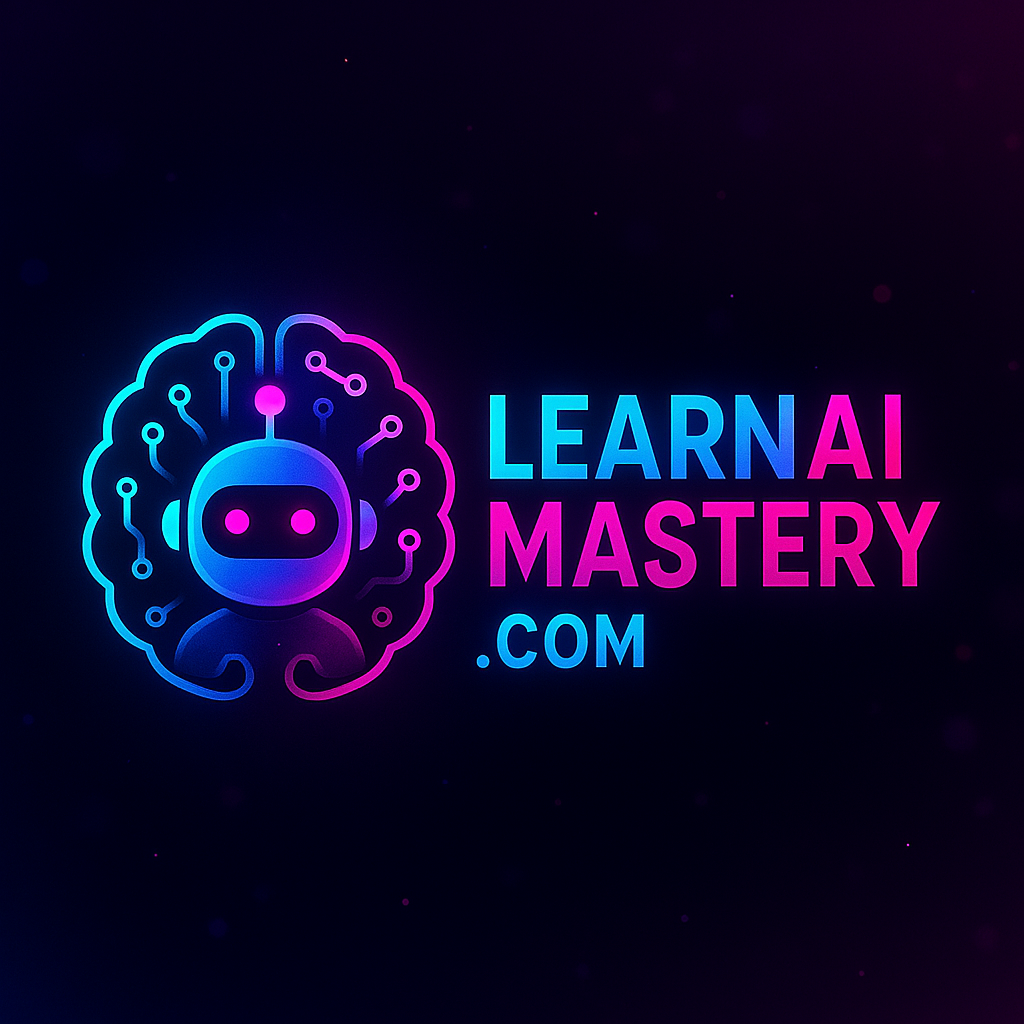The advent of Artificial Intelligence (AI) has ushered in a transformative era for digital marketing, fundamentally reshaping how businesses connect with their audiences. This revolution is not merely about automation but about fostering deeper, more meaningful engagement through intelligent systems. At its core, AI empowers marketers to achieve unparalleled levels of personalization, allowing for bespoke customer experiences that were once unimaginable. Beyond tailoring interactions, AI leverages sophisticated algorithms for predictive analytics, enabling brands to forecast trends and optimize campaigns proactively, moving from reactive strategies to foresight-driven initiatives [Marketing Dive – The Rise of Predictive Analytics in Digital Marketing].
Furthermore, AI-driven content creation tools are rapidly evolving, automating and enhancing marketing materials from initial drafts to final iterations. This not only boosts efficiency but also ensures content is highly relevant and optimized for specific audience segments. Complementing this, chatbots and conversational AI are enhancing customer engagement and support by providing instant, personalized interactions around the clock. These intelligent agents handle routine inquiries, guide customers through their journeys, and gather valuable insights, freeing up human agents for more complex tasks [TechCrunch – How Chatbots Are Reshaping Customer Service]. Finally, AI is revolutionizing advertising through advanced optimization techniques, allowing for precise targeting and maximizing Return on Investment (ROI) by ensuring ads reach the most receptive audiences at the optimal time, a concept explored further in Chapter 3: Optimizing Ad Performance with AI.
Hyper-Personalization at Scale: Delivering Bespoke Customer Experiences
Hyper-personalization represents the pinnacle of customer experience, moving beyond traditional segmentation to deliver truly bespoke interactions tailored to individual preferences and behaviors. It’s about creating a one-to-one marketing experience, distinguishing itself from basic personalization by its depth of insight and real-time adaptability. This approach is crucial in today’s crowded digital landscape, as consumers expect brands to understand and anticipate their needs. The benefits are profound, leading to increased customer loyalty, higher conversion rates, and enhanced brand advocacy [Forbes – Hyper-Personalization: The Key to Future Customer Loyalty].
Driving this capability are advanced AI algorithms and machine learning models. Techniques such as sophisticated recommendation systems analyze vast datasets of past behavior to suggest relevant products or content, while Natural Language Processing (NLP) enables AI to understand and respond to human language, powering intelligent chatbots and personalized email campaigns. Computer vision also plays a role, particularly in retail, by analyzing customer movements and preferences in physical or virtual spaces. Real-world applications of hyper-personalization are widespread, from e-commerce giants recommending products with uncanny accuracy to financial institutions offering tailored investment advice, showcasing significant impacts on key business metrics across diverse industries.
However, implementing hyper-personalization at scale is not without its challenges. Data privacy remains a paramount concern, requiring robust security measures and transparent consent mechanisms. Mitigating algorithmic bias is equally critical to ensure fair and equitable treatment for all customers, preventing discriminatory outcomes. Responsible AI practices are essential to navigate these complexities, fostering trust and ensuring ethical implementation. Looking ahead, the future of hyper-personalization is set to evolve with emerging trends like the metaverse and Web3, promising even more immersive and unique customer experiences that could fundamentally reshape customer loyalty and brand advocacy in ways we are only beginning to comprehend, building on the concepts of advanced personalization discussed in Chapter 5: The Future is Now.
Optimizing Ad Performance: Smarter Campaigns, Better ROI
Artificial intelligence is fundamentally transforming advertising, enabling marketers to execute smarter campaigns and achieve significantly better Return on Investment (ROI). A cornerstone of this transformation is AI-powered targeting, which allows businesses to reach the right audience with unprecedented precision. AI algorithms analyze vast datasets, including demographic information, online behaviors, purchase history, and psychographics, to identify and target the most receptive audiences. Techniques such as lookalike modeling, which identifies new audiences similar to existing high-value customers, and predictive analytics, which forecasts future consumer behavior, maximize ad spend efficiency by ensuring messages resonate deeply with potential customers.
Beyond targeting, AI automates bid management, optimizing bids in real-time to secure the best ad placements at the most efficient cost. Leveraging machine learning, AI continuously adjusts bids based on real-time data, competitor activity, and user behavior, ensuring campaigns remain competitive and cost-effective. These automated bidding strategies eliminate manual guesswork, leading to significant improvements in campaign performance and ROI by capturing optimal opportunities as they arise [AdWeek – AI’s Impact on Programmatic Advertising and ROI].
Furthermore, AI facilitates continuous campaign optimization. It analyzes performance data to identify areas for improvement, automatically adjusting campaign settings for better results. This includes AI-driven A/B testing automation, which rapidly tests multiple ad variations to determine the most effective elements, accelerating the optimization process. Predictive analytics extends this capability by forecasting campaign performance and identifying potential risks or opportunities before they fully materialize, empowering marketers with proactive insights for strategic campaign planning. To measure the effectiveness of these AI-driven ad campaigns and track performance for optimal ROI, marketers utilize key metrics and advanced data visualization tools. These insights are crucial for understanding the impact of AI on advertising spend and making data-driven decisions for future campaign success.
AI-Powered Content Strategy: From Creation to Curation
The integration of AI into content strategy is revolutionizing how brands conceive, produce, and manage their digital assets, streamlining the entire content lifecycle. AI-driven content creation tools are now capable of generating various content formats, from initial blog post drafts and articles to social media updates and marketing copy. While these tools offer immense potential for overcoming writer’s block and boosting creation speed, human oversight remains crucial for quality control, ensuring accuracy, originality, and brand voice consistency [Content Marketing Institute – AI in Content Creation: Tools and Best Practices].
Beyond creation, AI plays a pivotal role in optimizing content for search engines. AI-powered tools analyze search trends, identify high-impact keywords, and suggest optimizations to improve content’s discoverability and ranking. This focus on AI-driven SEO ensures that content not only reaches a wider audience organically but also attracts the *right* audience interested in the brand’s offerings. Ethical considerations surrounding AI-driven SEO practices, such as avoiding manipulative techniques, are paramount to maintaining credibility [Search Engine Journal – Optimizing SEO with Artificial Intelligence].
AI also enables highly targeted content distribution by personalizing delivery based on audience segmentation and individual preferences. It automates content dissemination across multiple channels, including social media platforms, email marketing campaigns, and website updates, ensuring content reaches the right person at the right time. This personalization significantly enhances user experiences and boosts engagement metrics. Furthermore, AI algorithms excel at content curation, sifting through vast amounts of information from various sources to identify and compile relevant, high-quality content. This capability helps brands stay updated on industry trends and identify emerging topics, enabling them to provide readers with valuable, well-rounded perspectives while maintaining high ethical standards in sourcing.
Finally, leveraging AI analytics is crucial for tracking content performance, understanding reader behavior, and continuously iterating on content strategy for optimal results. Marketers can delve into various metrics, analyze data, and refine their AI-powered content strategy to ensure it consistently achieves desired outcomes, from increased traffic to improved conversion rates.
The Future is Now: Emerging AI Trends and Ethical Considerations in Digital Marketing
The landscape of digital marketing continues to evolve at an unprecedented pace, largely driven by advancements in Artificial Intelligence. AI-powered personalization is moving beyond basic recommendations to the next level, incorporating advanced techniques like predictive modeling and real-time adaptation. This hyper-personalization, as discussed in Chapter 2: Hyper-Personalization at Scale, allows marketers to anticipate individual needs and preferences with remarkable accuracy, creating truly dynamic and responsive customer journeys. While offering immense benefits in engagement and conversion, the challenges of data management and privacy become even more pronounced.
Generative AI tools are rapidly transforming content creation within digital marketing. These technologies can produce a wide array of content, from compelling ad copy to sophisticated video scripts, offering significant benefits in terms of efficiency and scalability. However, their limitations, particularly concerning true creativity, originality, and the critical need for fact-checking, necessitate human oversight to ensure quality and authenticity. The human element is, in fact, crucial; AI should augment human capabilities rather than replace them. By automating routine and data-intensive tasks, AI frees marketers to focus on strategic planning, fostering creativity, and building meaningful customer relationships—areas where human intuition and empathy are irreplaceable.
Alongside these exciting advancements, a robust discussion around ethical considerations is essential. Transparency in AI-driven decision-making processes is paramount, allowing stakeholders to understand *how* AI reaches its conclusions. Mitigating algorithmic bias is equally critical to ensure fairness and prevent discriminatory outcomes in targeting or content delivery. Furthermore, strict adherence to data privacy regulations and ensuring explicit user consent for data collection and usage are non-negotiable aspects of responsible AI implementation [Harvard Business Review – Ethical AI: A Framework for Responsible Innovation]. As AI becomes more pervasive, navigating the emerging regulatory landscape and compliance requirements related to its use in marketing and advertising—including data protection laws and regulations against deceptive or manipulative practices—will be crucial for businesses to maintain trust and ensure long-term success [Gartner – Emerging Trends in AI for Marketing 2025].
Sources
- AdWeek – AI’s Impact on Programmatic Advertising and ROI
- Content Marketing Institute – AI in Content Creation: Tools and Best Practices
- Forbes – Hyper-Personalization: The Key to Future Customer Loyalty
- Gartner – Emerging Trends in AI for Marketing 2025
- Harvard Business Review – Ethical AI: A Framework for Responsible Innovation
- Marketing Dive – The Rise of Predictive Analytics in Digital Marketing
- Search Engine Journal – Optimizing SEO with Artificial Intelligence
- TechCrunch – How Chatbots Are Reshaping Customer Service





